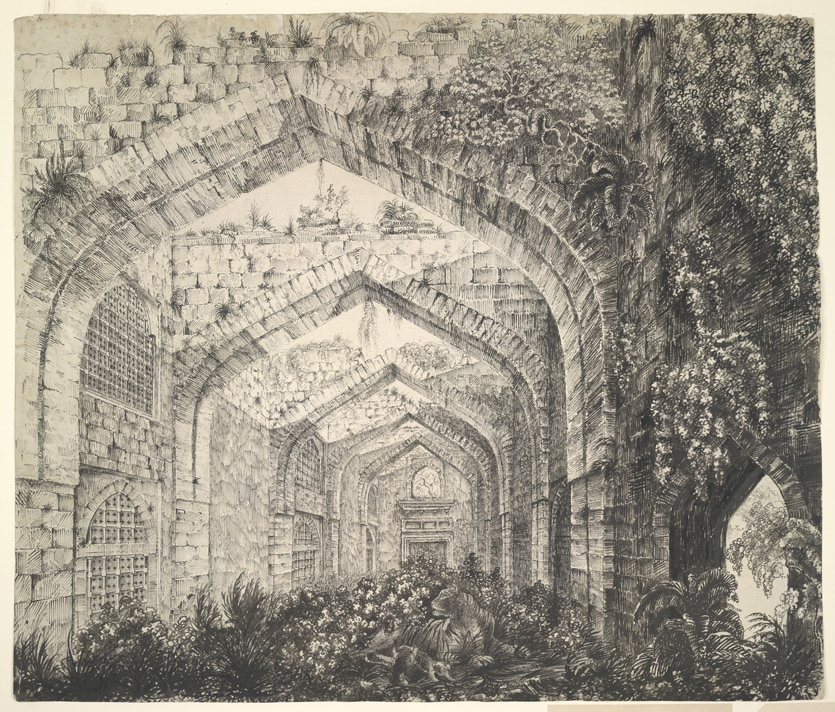FWP:
SETS == MUSHAIRAH
SCRIPT EFFECTS: {33,7}
SPRINGTIME: {13,2}
The first line is merely exclamatory-- the 'rainy season of the lover's weeping' is worth seeing, but why? What's going on with it now? There's no way we can tell. Under mushairah performance conditions, we have to wait in suspense for the second line. And even then, in classic mushairah-verse style the punch-word, 'wall', is withheld until the last possible moment. Only then does the verse become fully and suddenly interpretably and enjoyable. On the grammar of dekhā chāhiye , see {1,3}.
For in the verse we have, most enjoyably, several combinations of possible causes and possible effects. It's the rainy season of the lover's weeping-- and we all know about the rainy season. In it everything that's growing grows impossibly fast and luxuriantly. And everything that's man-made tends to decay, or collapse, or fall apart.
So now look at how cleverly both possibilities are allowed for in the second line, and the 'sight worth seeing' comment too is brought in. What does it mean that the garden wall bloomed/opened [khil gaʾī] in a hundred places? Here are some possibilities:
=That the wall was breached and knocked apart by the furious flood of the lover's weeping, so that it widened and 'opened' in a hundred places like the spreading petals of a flower in bloom.
=That the wall was so fertilized by the lover's tears that it itself became a hundred-petalled flower, and naturally began to 'bloom' the way everything does in the rainy season.
=That since the wall has almost disintegrated in the tear-flood, we can now see inside the garden-- we can observe the flowers in bloom and the lover in his superhumanly passionate grief. It's a sight worth seeing!
Underlying these readings is the semi-orthographical wordplay
between khilnā and khulnā .
As they are usually written in Urdu, without short vowel markers, the two
are indistinguishable. (I follow Arshi, who clearly shows a zer
.) And their meanings semi-overlap; see the definitions above. Basically,
khilnā means to open in the sense of 'to bloom, to
expand, to burst', while khulnā means to open in the
sense of 'to be revealed, exposed, cut open'. Thus both readings have enjoyable
affinities with the range of meanings established in the verse. I see echoes
of this same wordplay (though only subliminally) in {108,5}
as well. An example of its use by Mir: M{12,4}.

Nazm:
In place of hai , perhaps there was bhī . The calligrapher made an error. (96)
== Nazm page 96